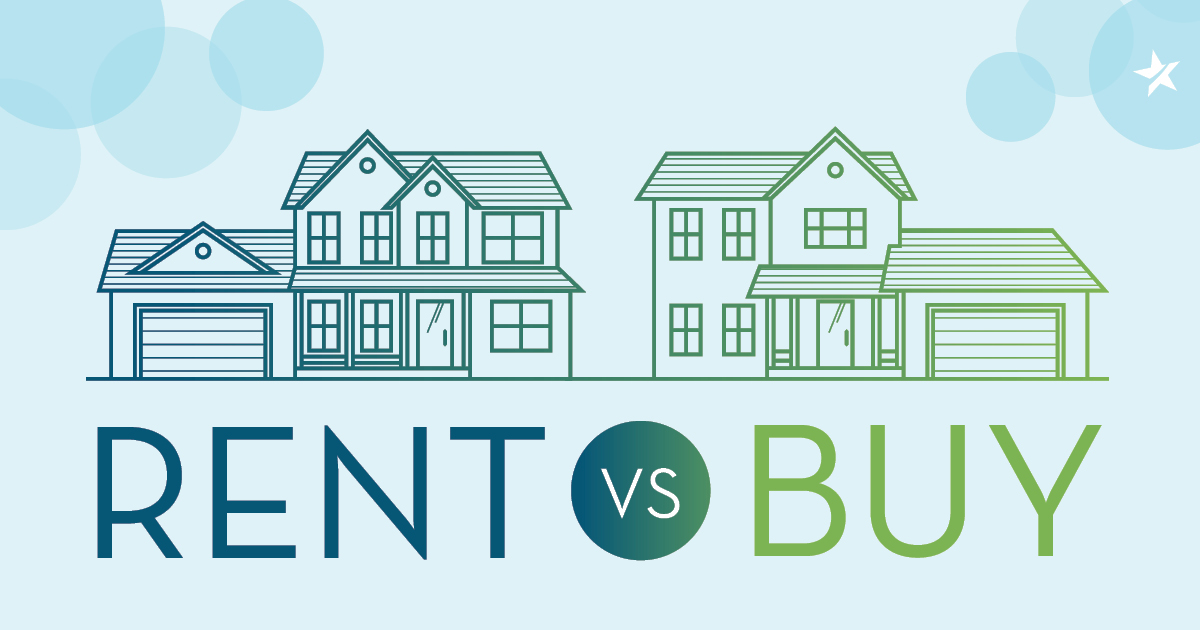One of life’s significant decisions revolves around choosing between renting and buying a home. Both options have their merits and drawbacks, and it’s crucial to carefully consider your financial situation, lifestyle, and long-term goals.
In this article, we will explore the pros and cons of renting and buying a home to help you make an informed housing decision that aligns with your needs and aspirations.
Renting a Home: Pros and Cons
Pros:
Flexibility: Renting offers greater flexibility in terms of location and duration of stay. It allows you to easily relocate based on changing circumstances, such as job opportunities or personal preferences.
Lower Initial Costs: Renting generally requires a lower upfront investment compared to buying a home. You won’t need to provide a down payment or worry about additional expenses like property taxes, maintenance, or homeowner’s insurance.
Minimal Responsibility for Maintenance: As a renter, you are typically not responsible for major repairs or maintenance costs. The landlord or property management company takes care of these tasks, allowing you to focus on other aspects of your life.
Access to Amenities: Many rental properties offer access to desirable amenities such as swimming pools, gyms, and communal spaces, which can enhance your lifestyle without the need for additional expenses or maintenance.
Cons:
Lack of Equity Building: When you rent, your monthly payments go towards the landlord’s investment, not your own. You don’t build equity in the property, missing out on the potential for long-term wealth accumulation.
Limited Control and Personalization: Renting restricts your ability to make significant changes or improvements to the property. You may have limitations on decorating, renovating, or even keeping pets, depending on the terms of your lease agreement.
Rent Increases: Landlords can increase rent at the end of each lease term, potentially leading to higher monthly expenses. Rent fluctuations can impact your long-term financial planning and stability.
No Tax Benefits: Unlike homeowners, renters do not have access to tax benefits such as mortgage interest deductions and property tax deductions, which can be financially advantageous.
Buying a Home: Pros and Cons
Pros:
Long-term Investment and Equity Building: Homeownership allows you to build equity over time. As you pay off your mortgage, you gradually increase your ownership stake in the property, providing a potential financial asset for the future.
Personalization and Control: Buying a home gives you the freedom to personalize and modify the property to suit your tastes and preferences. You have control over design choices, renovations, and landscaping.
Potential Tax Benefits: Homeowners may benefit from tax deductions, such as mortgage interest deductions and property tax deductions, which can help reduce tax liability and increase overall financial savings.
Stability and Security: Owning a home provides a sense of stability and security. You don’t need to worry about lease renewals or potential evictions, allowing you to establish roots in a community and create a lasting home for your family.
Cons:
Financial Commitment: Buying a home requires a significant financial commitment. You need to provide a down payment, cover closing costs, and budget for ongoing expenses like mortgage payments, property taxes, insurance, and maintenance.
Limited Flexibility: Homeownership ties you to a specific location and can make relocation more challenging. Selling a property may take time and involve additional costs, potentially limiting your flexibility to move as freely as a renter.
Responsibility for Maintenance: As a homeowner, you are responsible for the maintenance and repairs of the property. This can entail additional costs, time, and effort to ensure the home remains in good condition.
Market Volatility and Risk: Real estate markets can fluctuate, and property values may not always appreciate as expected. There is inherent risk associated with homeownership, particularly during economic downturns or housing market corrections.
The decision to rent or buy a home ultimately depends on your unique circumstances, preferences, and financial goals. Renting offers flexibility and lower initial costs, while buying provides the potential for long-term equity building and personalization. Consider your current financial situation, future plans, and personal preferences when evaluating the pros and cons. Consult with real estate professionals and financial advisors to ensure you make an informed decision that aligns with your needs and aspirations.




